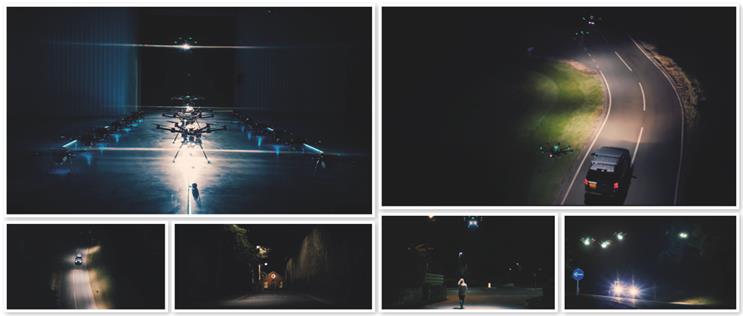While plenty of brands would like to think they’re changing the nature of the sector in which they operate, that’s rarely true in any real sense. But with its efforts to shift the focus of insurance from dealing with crisis situations to preventing them, Direct Line is doing just that.
The brand was already making use of cutting-edge technology to promote safe behaviour with its plug-in DrivePlus telematics device, which can be installed by the driver and feeds back data on their performance. But early this year, Direct Line launched Shotgun, an app for 17- to 19-year-olds that offered rewards, from brands including Starbucks and PizzaExpress, for safe driving during the first 1,000 miles logged by each driver. In six months, the app had clocked up 15,000 downloads, with almost one-third of users completing the 1,000-mile exercise. Crucially, data shows a correlation between using the app and improved driving behaviour.
Late last year, the brand took its technological innovation a step further when it created Fleetlights – a prototype drone that can move with a person through a poorly lit, rural area at night, lighting the way.
It was initially hoped that the machines could be used in real-life situations by 2021, but this year, Fleetlights became an operational technology, when Caister Volunteer Lifeboat Service became the first partner organisation to use the open-source technology. The adapted drones, with cameras, will light up the sea within a 10-mile radius of the lifeboat, aiding in search and rescue operations, particularly at night. The project not only means Direct Line may have a hand in saving lives – a good look for any business – but clearly marks out the brand as innovative and proactive.
The brand then brought the same thinking to the pedestrian crossing, launching another sophisticated prototype, The Smart Crossing. The use of computer vision enables the system to differentiate between motor vehicles, pedestrians and cyclists, and the LED road surface adapts its markings in real time. The initiative has the potential to improve road safety in several ways, for example: instantly reacting if a child strays on to the road; adapting its width to accommodate crowds, such as when children are leaving school; or alerting cyclists when a pedestrian they can’t see has started crossing. With more than 1,700 people killed on Britain’s roads in 2016, it’s not hard to imagine local councils being eager to adopt this technology at accident blackspots.
Alongside these innovations, the ongoing "Winston Wolf" campaign, created by Saatchi & Saatchi and featuring Harvey Keitel, shows no sign of running out of steam three years in, with recent ads bringing the darkly comic quips of "the fixer" to products including landlord insurance and improved onward-travel cover for people involved in a road accident.
The resonance of the brand can be seen in the numbers: quotes for motor insurance are up by 53%, and for home insurance up 26%. Across the Direct Line Group, premiums in the first nine months of 2017 were up 4.2% year on year to £2.6bn – and in motor insurance, they grew by 8.9% to £1.29bn. But if the technologies pioneered by Direct Line live up to their full potential, the most meaningful impact will be on the lives that might be saved.
EasyJet
The applause for Carolyn McCall when she was poached to succeed Adam Crozier as ITV chief executive was testament to the strength of the brand the outgoing easyJet boss has fostered. Though profits in the past year dropped by one-sixth as a result of the fall in the pound, passenger numbers grew 9.7% – while rival Ryanair had a torrid time and fellow British airline Monarch went out of business. Standout creative by VCCP has strengthened the easyJet brand further. After hitting and extending a target to recruit more female pilots under its Amy Johnson Initiative, the airline extended the scheme to engineers, with the aim that 50% of its apprenticeship recruits will be women.
Just Eat
Just Eat’s big brand relaunch, including ads created by Karmarama, was last year, but its impact continued into 2017, with spontaneous awareness of the food-ordering service up from 18% to 27%, orders up from 84 million to more than 100 million, and its share price on the rise. In April Just Eat signed a £30m, two-year deal to sponsor The X Factor, confirming its place at the heart of takeaway culture.
Airbnb
Chief marketing officer Jonathan Mildenhall may have left in October to start his own brand consultancy, but the strength of Airbnb’s brand has never been higher. It has taken a bold stance in promoting progressive values around the world, from its "We accept" Super Bowl ad, which implicitly hit back against Donald Trump’s travel ban, to its "acceptance ring", supporting the movement for marriage equality in Australia. And its Cannes recruitment drive for female and BAME creatives showed an intention to walk the walk on diversity. •
Recent winner: Tesco (2016)


